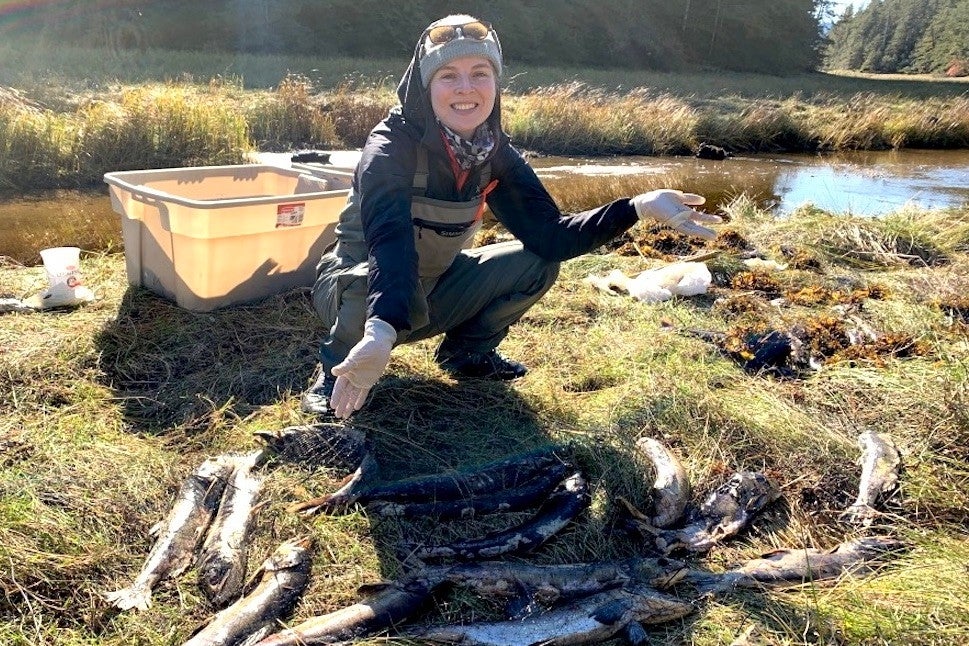How dead salmon makes flowers more beautiful
Researchers experimentally added pink salmon carcasses into the estuary of a small river in British Columbia
Nutrients from salmon carcasses can cause some flowers to grow bigger and more plentiful, researchers have found.
Scientists have demonstrated a connection between salmon and coastal plant growth and reproduction. The work extends what has previously been known about a nitrogen isotope found in some plants and animals and has been generally attributed to the nutrients from salmon.
The Simon Fraser University (SFU) study also sheds light on how the impact of climate change on the rivers and streams travelled by salmon could help to inform ecosystem planning and management.
During a three-year field study, researchers experimentally added pink salmon carcasses into the estuary of a small river in the Heiltsuk territory, on the central coast of British Columbia in Canada, which features a large meadow of grasses and wildflowers.
“Following our experiments, we found that some species of wildflower grew larger leaves where a salmon carcass was deposited, and in some years, some species grew larger flowers or produced more seeds,” says PhD biology student Allison Dennert, who led the research.

The team undertook similar experiments using drift seaweed rockweed, which provides a different set of nutrients. They also experimented with a combination of rockweed and salmon carcasses and then examined their impacts on four common wildflower species. This included silverweed, yarrow, Douglas’ aster and common red paintbrush.
Researchers found that the addition of salmon carcasses led to larger leaves, particularly in yarrow and the common red paintbrush, and a greater seed set in yarrow in the third year.
"Understanding the interconnection between ecosystems is incredibly important to our knowledge of how to protect them,” said Ms Dennert, who also works with the Raincoast Conservation Foundation.
“Currently, lands and waters are managed under separate provincial and federal jurisdictions. Scientifically and management-wise, we think of the land and sea as separate and unconnected entities. This work furthers the idea that ecosystems don’t exist in isolation, and that what happens in one can influence the other.”
The research comes as salmon stocks in the region continue to decline. Research published last summer by SFU alumnus Will Atlas found that chum salmon abundance in the team’s study area had declined by almost 50 per cent in the past 15 years and over 70 per cent within the last 50 years.
Ms Dennert was among researchers who found thousands of decaying salmon in a dried-up river in the Heiltsuk area last summer. “In some areas on our coast,” she noted, “we’re rapidly losing salmon biomass and the ocean’s connection to life on land."
Join our commenting forum
Join thought-provoking conversations, follow other Independent readers and see their replies
Comments
Bookmark popover
Removed from bookmarks